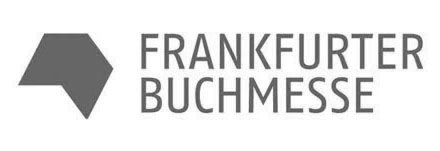It provides the basis for understanding the research problem and how to approach it. Theoretical frameworks are often based on existing theories or models from other disciplines or fields of study. They provide a way of organizing information and making sense of it in order to answer questions or solve problems.
- The Reeves et al. (2016) conceptual framework may be modified as additional data are collected and analyzed by other researchers.
- We describe what biology education researchers should consider as they conduct literature reviews, identify theoretical frameworks, and construct conceptual frameworks.
- In the research process, there is often a constant back and forth among these elements as the study evolves.
- It assists in explaining the issue under study and refining the research questions.
- Given that the research question(s) arise from the literature review, the review should also substantiate the selected methodological approach.
- They provide the foundation for understanding the research problem and how to approach it.
- The scientists’ theoretical frameworks influence how they design and carry out their studies and interpret their data.
These frameworks can emerge from a current study or the need to explain a phenomenon in a new way. Researchers may also find that multiple theoretical frameworks are necessary to frame and explore a problem, as different frameworks can provide different insights into a problem. When a study is designed around a theoretical framework, the theory is the primary means in which the research problem is understood and investigated.
Chi-Square Test (Χ²) Examples, Types, and Assumptions
Each data-collection and analysis decision connected to understanding the influence of collaborative work. A solid literature review clearly anchors the proposed study in the field and connects the research question(s), the methodological approach, and the discussion. Reviewing extant research leads to research questions that will contribute to what is known in the field. By summarizing what is known, the literature review points to what needs to be known, which in turn guides decisions about methodology. Finally, notable findings of the new study are discussed in reference to those described in the literature review. A conceptual framework is an analytical tool used to make explicit the assumptions underlying a particular research project.
How do you explain a theoretical framework?
The theoretical framework is the structure that can hold or support a theory of a research study. The theoretical framework introduces and describes the theory which explains why the research problem under study exists.
When included in the introductory section of the study, the first few paragraphs of the manuscript set the stage, with the literature review following the opening paragraphs. Cooper et al. (2019) illustrate this approach in their study of course-based undergraduate research experiences (CUREs). An introduction discussing the potential of CURES is followed by an analysis of the existing literature relevant to the design of CUREs that allows for novel student discoveries. Within this review, the authors point out contradictory findings among research on novel student discoveries. This clarifies the need for their study, which is described and highlighted through specific research aims.
Difference between Conceptual Framework and Theoretical Framework
The concept and term of theory are essential in any-discipline, that perceives itself as scholarly or scientific, hence theory is essential in educational-research as a research-domain. Interest in theory-method relations, comes from previous-works on structure and agency in teaching-learning-interactions in higher-education. In addition, there have been criticisms of the extent of theory use and the type of theory applied in higher-education-research. This study is therefore, focused on illustrative-review of theories and models relevant to cheating-behaviour, which resulted in an array of 19 theories, 10 models and 3 supportive-approaches. This contribution seeks inspiring an interest in the academic-fraternity into using solid-theoretical-foundation for their-study on cheating-behaviour, thus promoting of educational-research of high-scientific-value.
Two of the best ways to look for theoretical frameworks is through published works that highlight different frameworks. The “theoretical framework” of an experiment or paper refers to the larger assumptions in which the researcher is working. For example, a psychologist writing a paper may be working in a Freudian, Jungian or behaviorist theoretical framework.
Differences between Theoretical and Conceptual Frameworks:
Other studies have presented a research logic model or flowchart of the research design as a conceptual framework. These constructions can be quite valuable in helping readers understand the data-collection and analysis process. However, a model depicting the study design does not serve the same role as a conceptual framework. Researchers need to avoid conflating these constructs by differentiating the researchers’ conceptual framework that guides the study from the research design, when applicable. This chapter discusses the use of conceptual and theoretical frameworks in social science research with a focus on heritage studies. Incorporating theory or developing a conceptual framework is a critical part of the research design process.
To summarize, in guiding and structuring research, they serve slightly different purposes. Theoretical frameworks are often based on existing theories and research, whereas conceptual frameworks may be developed specifically for a particular research project. Additionally, theoretical frameworks are often broader in scope and include multiple interrelated concepts or variables, while conceptual frameworks may be more focused and include a smaller number of core concepts. Within an educational https://personal-accounting.org/what-are-the-variations-between-conceptual/ study, a theoretical framework helps to explain a phenomenon through a particular lens and challenges and extends existing knowledge within the limitations of that lens. Theoretical frameworks are explicitly stated by an educational researcher in the paper’s framework, theory, or relevant literature section. The framework shapes the types of questions asked, guides the method by which data are collected and analyzed, and informs the discussion of the results of the study.
Student Resources
Furthermore, they found that institutional change was sustained when key leaders served as mentors and provided support for faculty, and as faculty themselves developed into leaders. This study reveals the complexity of individual roles in a COP in order to support institutional instructional change. The first step in identifying a theoretical framework involves reflecting on the phenomenon within the study and the assumptions aligned with the phenomenon. There are many possibilities, for example, student learning, instructional approach, or group organization. A researcher holds assumptions about how the phenomenon will be effected, influenced, changed, or portrayed. It is ultimately the researcher’s assumption(s) about the phenomenon that aligns with a theoretical framework.
- When the data are analyzed, the theoretical framework should provide added meaning to the findings, and the findings should align with the theoretical framework.
- In terms of Vygotsky (1978), this finding provided new insights into the learning context in which productive interactions can occur for students.
- These constructions can be quite valuable in helping readers understand the data-collection and analysis process.
- This can result in the theoretical framework prioritizing individuals, institutions, and/or policies (Anfara and Mertz, 2014).
- BER is an evolving disciplinary area that is redefining areas of conceptual emphasis as well as orientations toward teaching and learning (e.g., Labov et al., 2010; American Association for the Advancement of Science, 2011; Nehm, 2019).
They should look for gaps in knowledge and identify what questions need to be answered or what problems need to be given solutions. Thus, they will be able to formulate their own conceptual framework to serve as guide in their research venture. The theoretical framework provides a general representation of relationships between things in a given phenomenon. The conceptual framework, on the other hand, embodies the specific direction by which the research will have to be undertaken.
The instrument or instruments you use are also important to your theoretical framework. Researchers develop instruments from theories; therefore, instruments have specific theoretical bases. Well, there are several instruments for that, and you want to choose the one most suited for your study. Then, you would use Goleman’s theory of emotional intelligence for your framework, not the theory of another researcher. Instruments that measure the same construct are different, and their supporting theories and components are too.
- When a study is designed around a theoretical framework, the theory is the primary means in which the research problem is understood and investigated.
- Many students, both in the undergraduate and graduate levels, have difficulty discriminating the theoretical from the conceptual framework.
- Conceptual frameworks are different from theoretical frameworks in both their breadth and grounding in established findings.
- When these elements are aligned and complement one another, the study is coherent, and the study findings contribute to knowledge in the field.
- It may represent expected relationships among variables in written or diagrammatic form.
Найкращий лайк — це 30 гривень))
Фондуючи незалежну редакцію Читомо, ви допомагаєте зростити нове покоління професіоналів видавничої справи і збільшуєте кількість хороших книжок у світі.
Спасибі.

|















Щоб залишити свій коментар, будь ласка, увійдіть через аккаунт Vkontakte чи Facebook